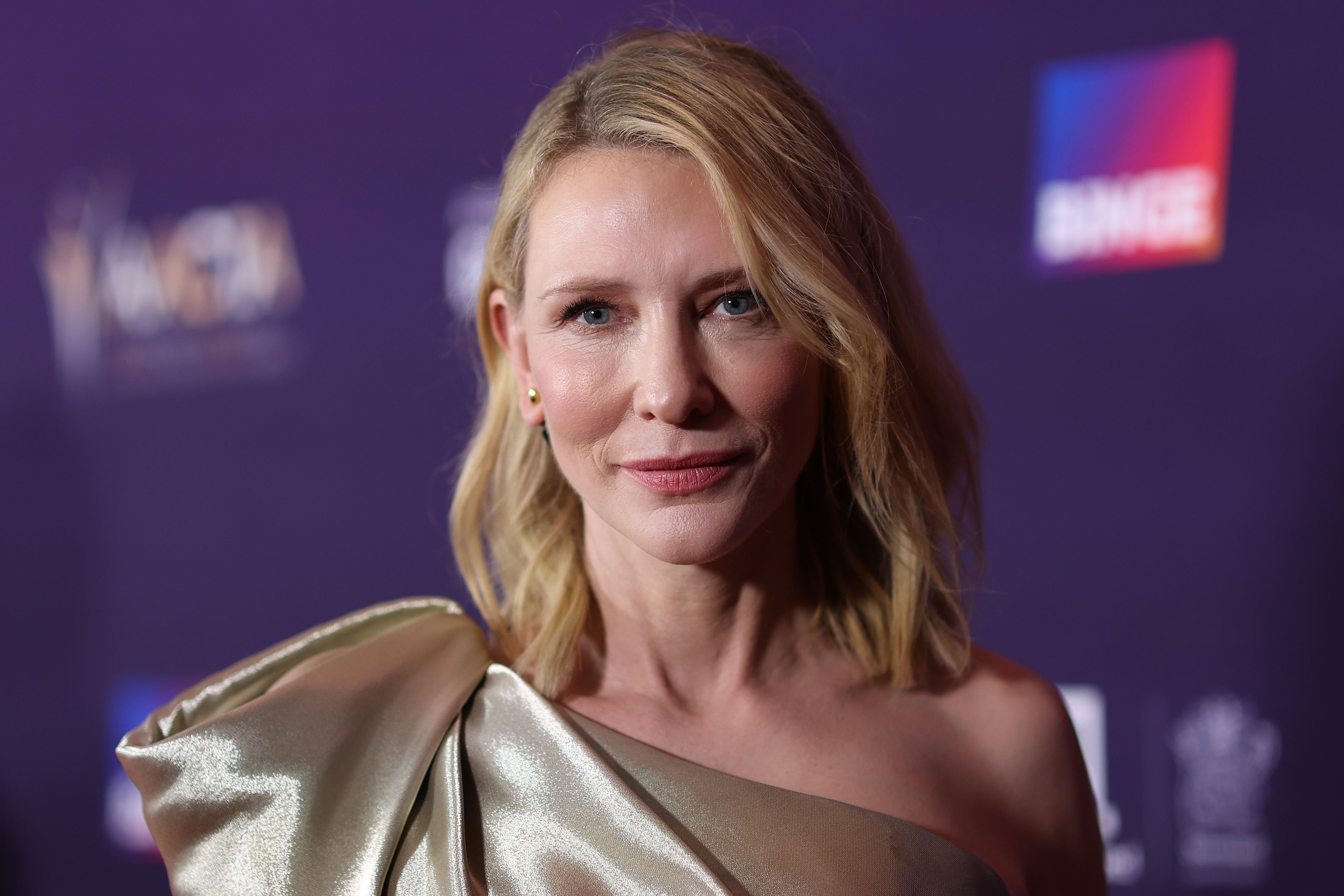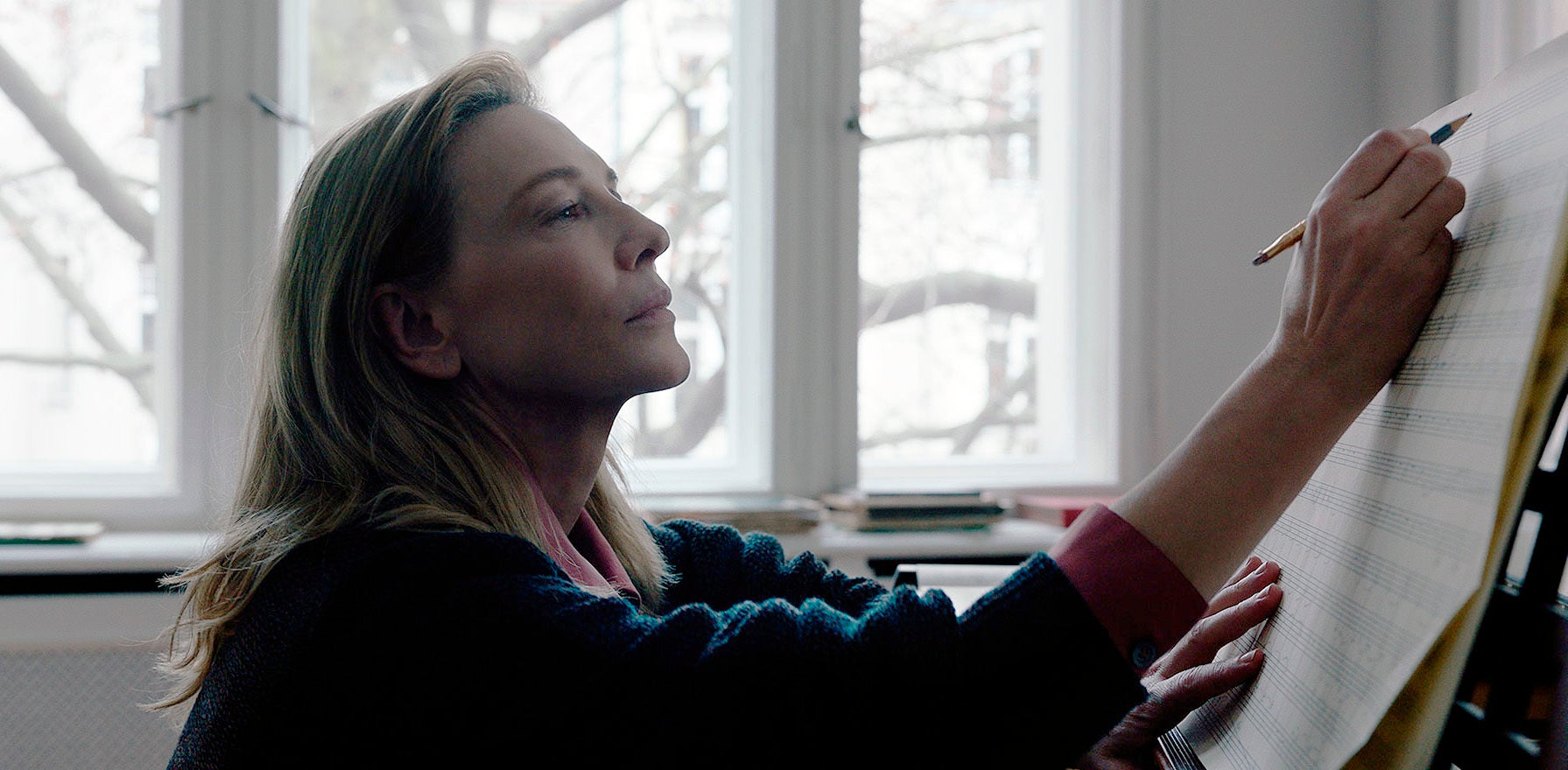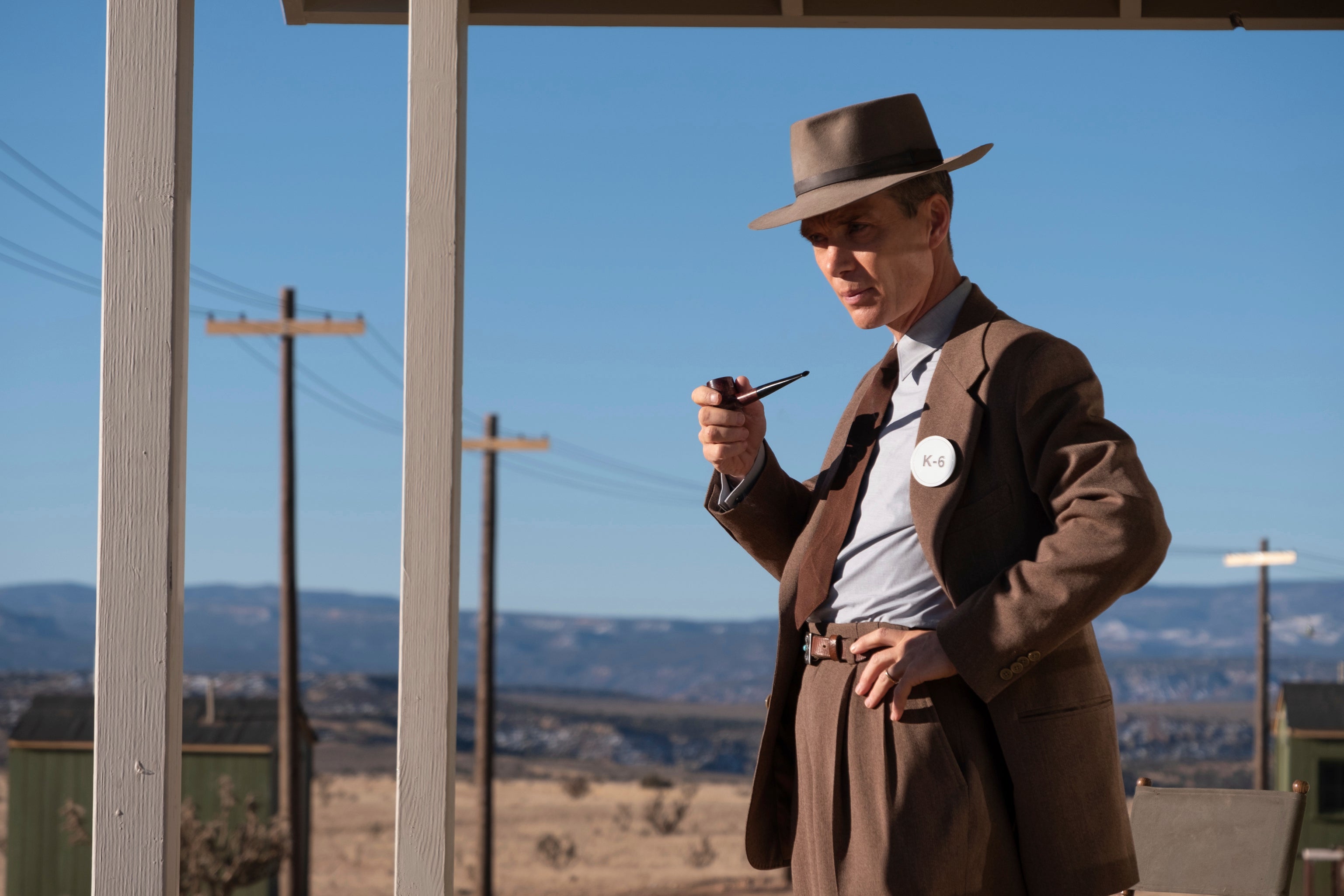Cate Blanchett says society is ‘terrified of tough conversations’ as she hits out at ‘trigger warnings’
Oscar-winning actor said she was thrilled with the debate that her recent, Academy Award-nominated film ‘Tár’ generated
Your support helps us to tell the story
From reproductive rights to climate change to Big Tech, The Independent is on the ground when the story is developing. Whether it's investigating the financials of Elon Musk's pro-Trump PAC or producing our latest documentary, 'The A Word', which shines a light on the American women fighting for reproductive rights, we know how important it is to parse out the facts from the messaging.
At such a critical moment in US history, we need reporters on the ground. Your donation allows us to keep sending journalists to speak to both sides of the story.
The Independent is trusted by Americans across the entire political spectrum. And unlike many other quality news outlets, we choose not to lock Americans out of our reporting and analysis with paywalls. We believe quality journalism should be available to everyone, paid for by those who can afford it.
Your support makes all the difference.Cate Blanchett has expressed her distaste for “trigger warnings” before films or theatre performances, suggesting it implies there is “a lack of mutual respect” between the creators and their audience.
The Oscar-winning Australian actor, 54, missed out on a second Best Actress win at last year’s Academy Awards for her controversial film Tár, in which she stars as a revered conductor met with a string of serious allegations (the award instead went to Michelle Yeo, for her performance in Everything Everywhere All at Once).
Despite this, Blanchett has said she found the discussion around the film “thrilling”, declaring that she doesn’t want “happy agreement” on her projects.
“That was the most thrilling thing,” she told The Sunday Times of the debate Tár sparked around its portrayal of cancel culture and “problematic” people. “You don’t want a film about which everybody is going to say, ‘Well done.’ When people debate it it’s absolutely thrilling.”
Culturally, Blanchett claimed, “we are terrified of tough conversations… but we need them. We talk about radical candour, but when there’s a trigger warning in front of something you are implying that there is a lack of mutual respect or that the subject hasn’t been properly interrogated.”
She told the publication that one of her favourite feelings was to sit in the Barbican Theatre “with a bunch of strangers in the dark, collectively committed to watch what you are dealt with, to then discuss robustly.
“It may offend you,” she said. “It may challenge you. You may laugh uproariously. You just don’t know, but you are going to surrender to what is coming.”

Her comments come not long after fellow actor Ralph Fiennes called for trigger warnings to be banned from theatre performances, as he believes audiences should be “shocked” or “disturbed” at times.
“I think the impact of theatre should be that you’re shocked and you should be disturbed,” he told the BBC. “I don’t think you should be prepared for these things and when I was young, [we] never had trigger warnings for shows.”

Watch Apple TV+ free for 7 days
New subscribers only. £8.99/mo. after free trial. Plan auto-renews until cancelled

Watch Apple TV+ free for 7 days
New subscribers only. £8.99/mo. after free trial. Plan auto-renews until cancelled
In a four star review for The Independent, critic Clarisse Loughrey wrote: “[Blanchett’s character] Lydia herself is so compellingly constructed, a perfect synthesis of hypocrisy and denial, that [director Todd] Field’s shortcuts never cost the film much of its nuance.
“She bemoans ‘cancel culture’, but has forced the blacklisting of a former mentee to conceal evidence of her misdeeds. She prizes talent but undermines it in others. And within the cold, brutalist spaces of production designer Marco Bittner Rosser, there’s little escape from the full force of her undoing, either for the audience or for those in Lydia’s own orbit.”

Blanchett’s performance, she said, “functions as a total culmination, the crystallised form of all the women Blanchett’s played in the past – from Elizabeth I to Lilith in Nightmare Alley – who act like they have total control but may actually be hollow on the inside”.
The Blue Jasmine star was speaking on the eve of this year’s Academy Awards, where blockbuster films including Oppenheimer, Barbie, Killers of the Flower Moon and Poor Things are set to duke it out for the night’s biggest prizes.
Oppenheimer star Cillian Murphy is widely expected to scoop the gong for Best Actor, while his director, Christopher Nolan, is predicted to take home his first Oscar for Best Director.

Meanwhile, Poor Things star Emma Stone and Killers of the Flower Moon’s Lily Gladstone are the two favourites for Best Actress, and Robert Downey Jr is the favourite for Best Supporting Actor, thanks to his performance opposite Murphy in Oppenheimer.

Join our commenting forum
Join thought-provoking conversations, follow other Independent readers and see their replies
Comments